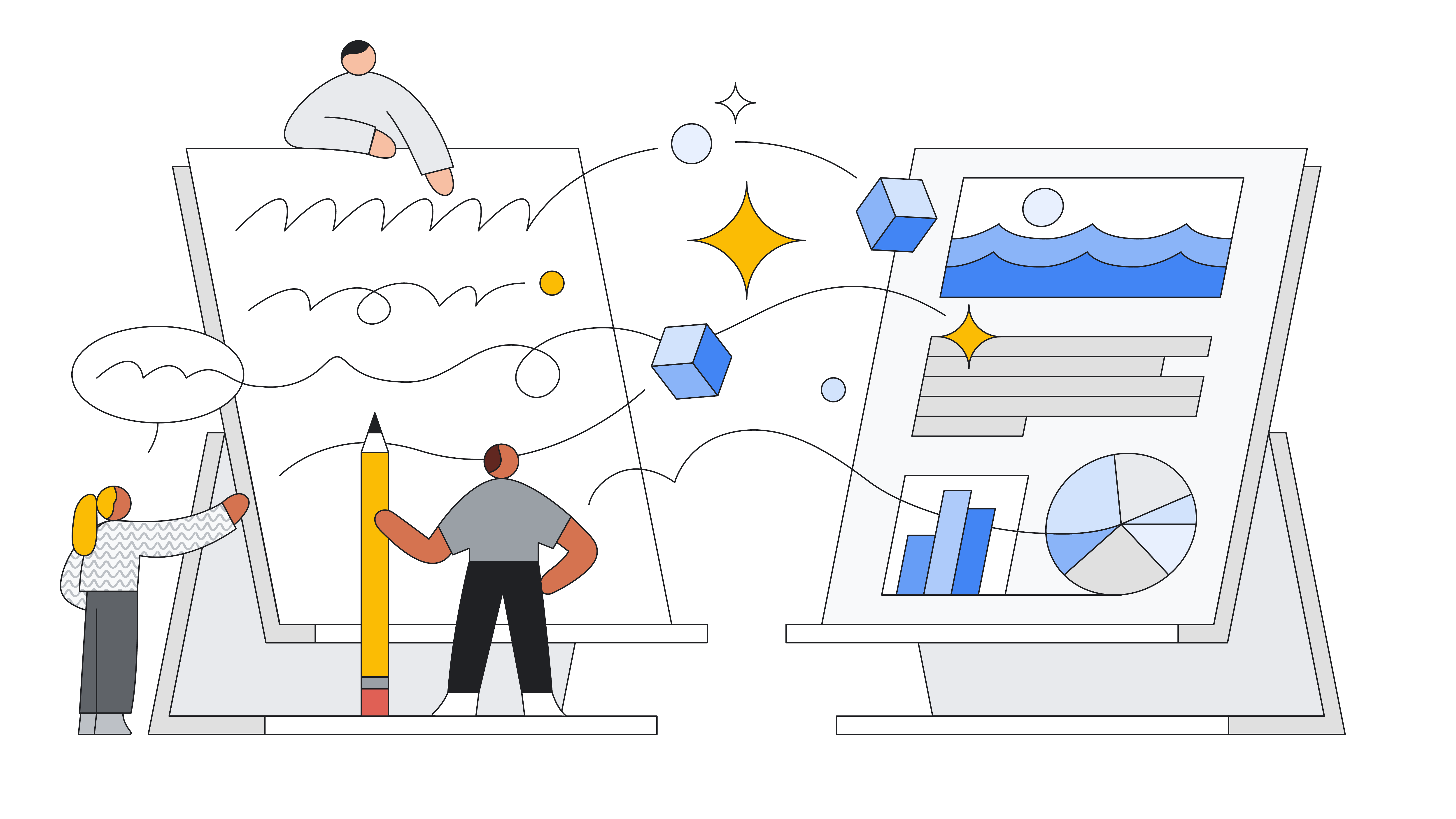Artificial Intelligence (AI) has dominated the tech landscape in recent years. But how has this powerful technology infiltrated the everyday lives of developers? DORA’s recent survey sheds light on the current state of AI adoption and its perceived impact in the workplace.
The 2024 DORA Report will include a deeper exploration of the impacts AI is having in the workplace. The report will look into the relationships between AI adoption, developer practices, and organizational outcomes, using more sophisticated statistical models to uncover the complex interplay of factors shaping this dynamic landscape.
This early preview of our findings explores the following aspects of AI adoption.
- Reliance: How much does AI contribute to developers’ specific tasks?
- Surfaces of Interaction: Where do developers interact with AI in their work?
- Attitudes: How do developers feel about AI’s impact on their productivity, career, and the world?
- Future Reflections: What predictions do developers have about the impact of AI on various aspects of their lives?
This preview will close with some insights into the impact of AI.
Reliance: a shift in the development landscape
This year’s report examines the extent to which developers rely on AI for various tasks related to software development. Comparing this year’s results to last year’s demonstrates that AI adoption has — and this might not be surprising to you — continued on a steady rise. Last year’s questions, however, are different from this year’s questions, making a direct comparison difficult.
The majority of respondents reported at least some reliance on AI for tasks including code explanation, documentation, writing code, and code optimization. This finding suggests a growing acceptance and integration of AI tools into the core activities of software development.
Surfaces of interaction: where AI meets development
We investigated the “surfaces” where developers interact with AI, focusing on the environments and tools where AI is most commonly encountered.
AI was prevalent in integrated development environments (IDEs) and internal web interfaces, which suggests that organizations want to streamline workflows and enhance productivity by incorporating AI features directly into the tools that developers use daily.
However, we also noted roughly half of respondents reported not interacting with AI as an automated part of their tool chain.
Attitudes: trust and transparency in the age of AI
We also explored developer attitudes towards AI, focusing on trust and transparency. We asked respondents about their level of trust in the quality of AI-generated code, and their organization’s transparency regarding AI implementation.
There is a relatively low level of trust in AI-generated code, with only 24% of respondents saying that they trust AI-generated code “a lot” or “a great deal”. This indicates a significant degree of skepticism and cautiousness among developers when it comes to relying on AI-generated outputs.
When asked if their organization is being transparent about how AI is being used, the majority of respondents agreed or somewhat agreed, but a substantial portion expressed neutral or negative sentiments. This suggests room for improvement in terms of how organizations communicate their AI strategies and plans to their development teams.
Google Cloud’s Office of the Chief Information Security Officer (CISO) published How to craft an Acceptable Use Policy for gen AI (and look smart doing it). This article recommends having a well-defined Acceptable Use Policy (AUP) to help with risk mitigation, strategic organizational alignment, and promoting compliance.
Future reflections: navigating the impact of AI
Beyond its current applications, AI’s potential impact on the future of work, productivity, and society is a topic of much discussion and speculation. To explore developer sentiments on this issue, we asked them to predict the impact of AI on various aspects of their lives in the next year, the next five years, and the next ten years.
- Many developers perceive a negative impact on career trajectories over longer timeframes, with more respondents expressing concern about the long-term effects of AI on their career a decade from now. This could reflect anxieties about job displacement or the changing skill sets required in an AI-driven workplace.
- Developers were also concerned about AI’s negative impact on product quality and software delivery processes remain relatively low across all timeframes. This suggests that they have a degree of confidence in AI’s ability to enhance these aspects of software development.
- Developer concerns are more pronounced on the broader societal and environmental impacts of AI, especially in the long term. This aligns with wider public discourse surrounding the ethical implications and potential risks associated with AI development and deployment.
Impact of AI
This year’s DORA survey respondents offer valuable insights into the evolving relationship between AI and software development, thank you to everyone who participated!
We see widespread adoption of AI for various tasks, particularly within IDEs and internal web platforms, indicating a growing integration of AI into developer workflows. However, concerns around trust in AI-generated code and organizational transparency regarding AI implementation highlight important considerations for the responsible development and deployment of AI in the workplace.
The adoption of AI is showing impact on many different aspects of performance and developer experience including:
- Productivity
- Flow
- Documentation quality
- Job satisfaction
- Time spent doing creative work
- Delivery stability
The 2024 DORA Report will include a deeper exploration of the impacts AI is having in the workplace. The report will look into the relationships between AI adoption, developer practices, and organizational outcomes, using emerging methods in causal inference to help uncover the complex interplay of factors shaping this dynamic landscape.
As AI continues to reshape the software development landscape, understanding these nuances will be essential for maximizing the benefits of AI while mitigating potential risks.
Next steps
- Read more AI research from DORA.
- Enable your software delivery teams to innovate with generative AI with insights from this DORA Guide.
- Join the DORA Community to continue this discussion and be notified when the 2024 DORA Report is published.

